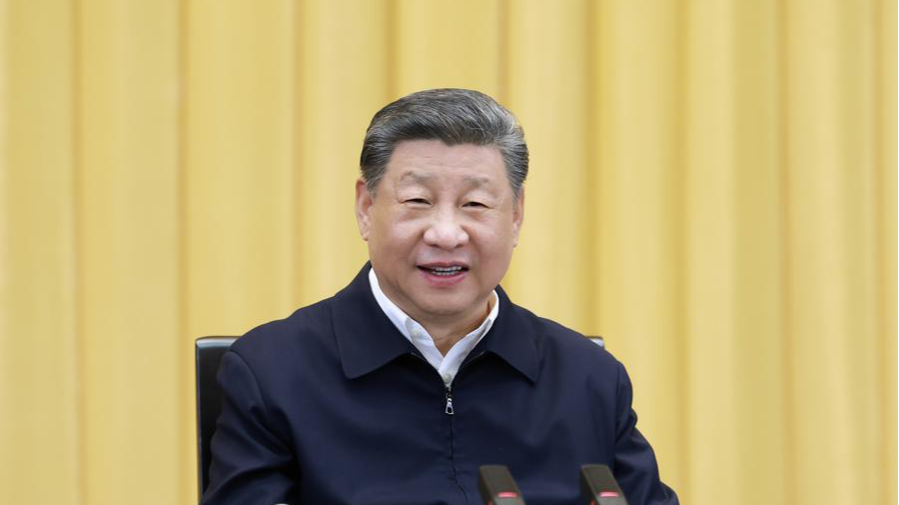BEIJING: Chinese President Xi Jinping has encouraged young sinologists to serve as messengers to promote mutual understanding between Chinese and foreign civilizations, Xinhua News Agency reported on Thursday.
Xi made the remarks in a reply letter to 61 young sinologists from 51 countries, who will attend the 2025 World Chinese Language Conference from Friday to Sunday in Beijing.
Xi expressed his delight that the young sinologists not only cherish the Chinese language and culture, but also actively foster the progress of sinology and mutual learning among civilizations.
In his letter, Xi emphasized that sinology represents a common heritage shared by all humanity.
Xi encouraged these young sinologists to continue to present a true, multi-dimensional and panoramic view of China to the world, contributing their wisdom and strength to building a community with a shared future for humanity.
The young sinologists recently wrote to Xi, sharing their experiences and insights gained through China studies — as well as expressing their willingness to deepen their study and facilitate cultural exchanges.
The 2025 World Chinese Language Conference, hosted by the Ministry of Education, is set to commence on Friday at the China National Convention Center in Beijing, drawing nearly 5,000 participants from over 160 countries and regions, according to a press release that the Center for Language Education and Cooperation (CLEC) sent to the Global Times on Thursday.
Under the theme “Innovation Leads, AI Empowers: Learning Chinese Without Borders”, the event showcases how digital technologies are reshaping global Chinese education while reinforcing the language’s role as a bridge for civilizational dialogue and practical development, per the release.
Several sinologists approached by the Global Times shared that that as a core carrier of cultural heritage, Chinese language education has emerged as a tangible practice of the Global Civilization Initiative (GCI), fostering mutual understanding and equal dialogue among diverse cultures.
Dario Famularo, an Italian scholar and postdoctoral fellow of the Belt and Road Academy at the Beijing Language and Culture University, has participated in the World Congress on China Studies and is set to attend the World Chinese Language Conference.
He told the Global Times that China Studies and Chinese language education together give concrete content to the GCI, which calls for dialogue among civilizations grounded in equality and mutual respect.
“Such dialogue becomes real only when we make the effort to enter the linguistic and intellectual worlds of others,” he said, adding that each language opens a distinct way of seeing the world, and learning languages is the bridge that lets people experience another civilization from the inside. “Multilingualism, therefore, is the foundation of multiculturalism.”
Iranian sinologist Zeynali Rezvan, a participant in the “New Sinology Program,” echoed that view, saying that Chinese proficiency enables direct engagement with authentic Chinese culture and ideas, breaking free from one-sided narratives.
“Mastering Chinese allows us to bypass information gaps created by Western media and decode China’s development models through primary sources, from policy documents to technical literature,” Rezvan told the Global Times.
Liah Greenfeld, Professor Emeritus of Sociology, Political Science, and Anthropology, Boston University, told the Global Times that China’s rise has opened a new chapter in civilizational studies.
Greenfeld emphasizes that China’s rise represents not only a shift in global dynamics, but also a historic opportunity for humanity to enhance self-understanding and mutual learning through comparative civilizational perspectives.
Etienne Bankuwiha, a Burundian sinologist, shared his journey from being a Confucius Institute student to becoming the country’s first local director of a Confucius Institute and Chinese studies researcher.
“My experience vividly reflects the spirit of the GCI,” he told the Global Times. Through local language publications and cross-cultural academic work, he aims to help African audiences understand China through their own lens. –The Daily Mail-Global Times news exchange item





